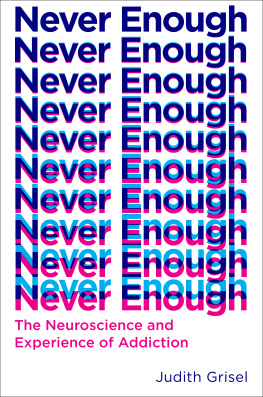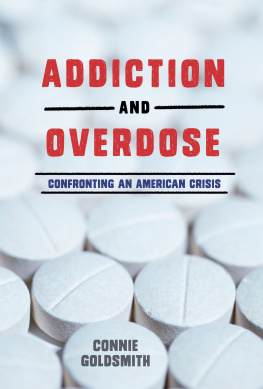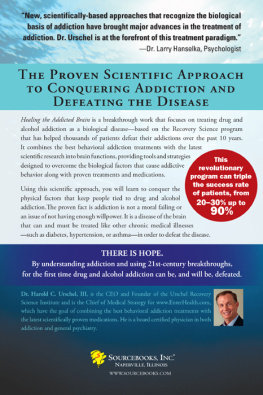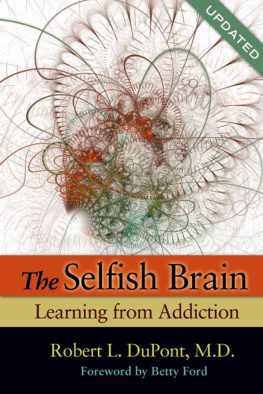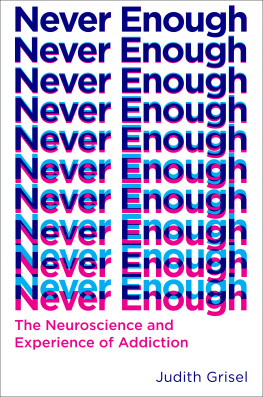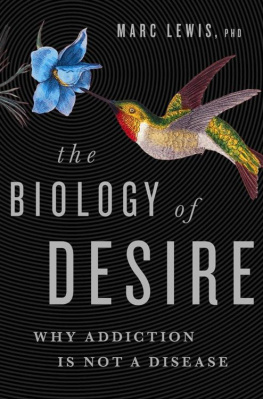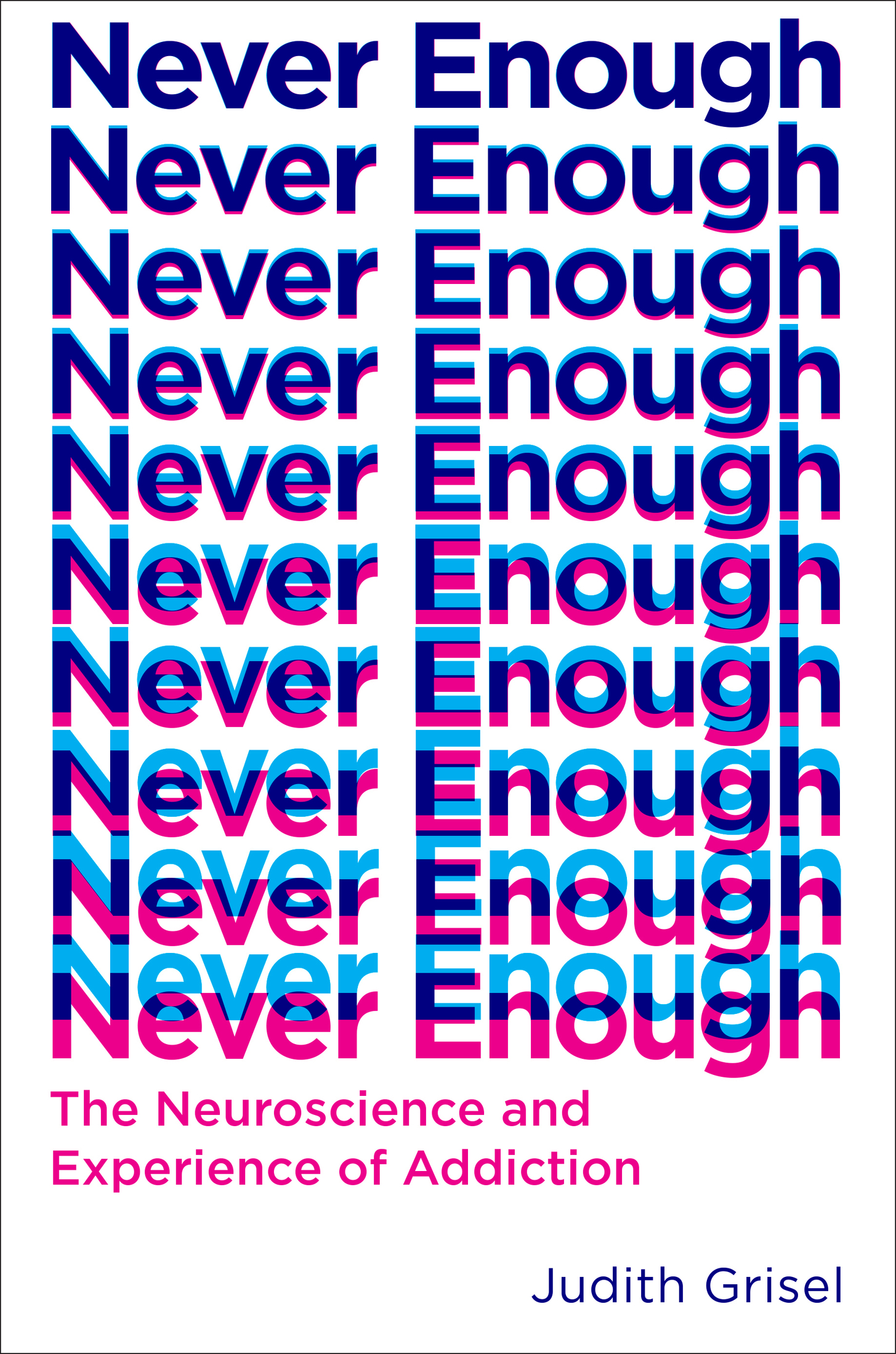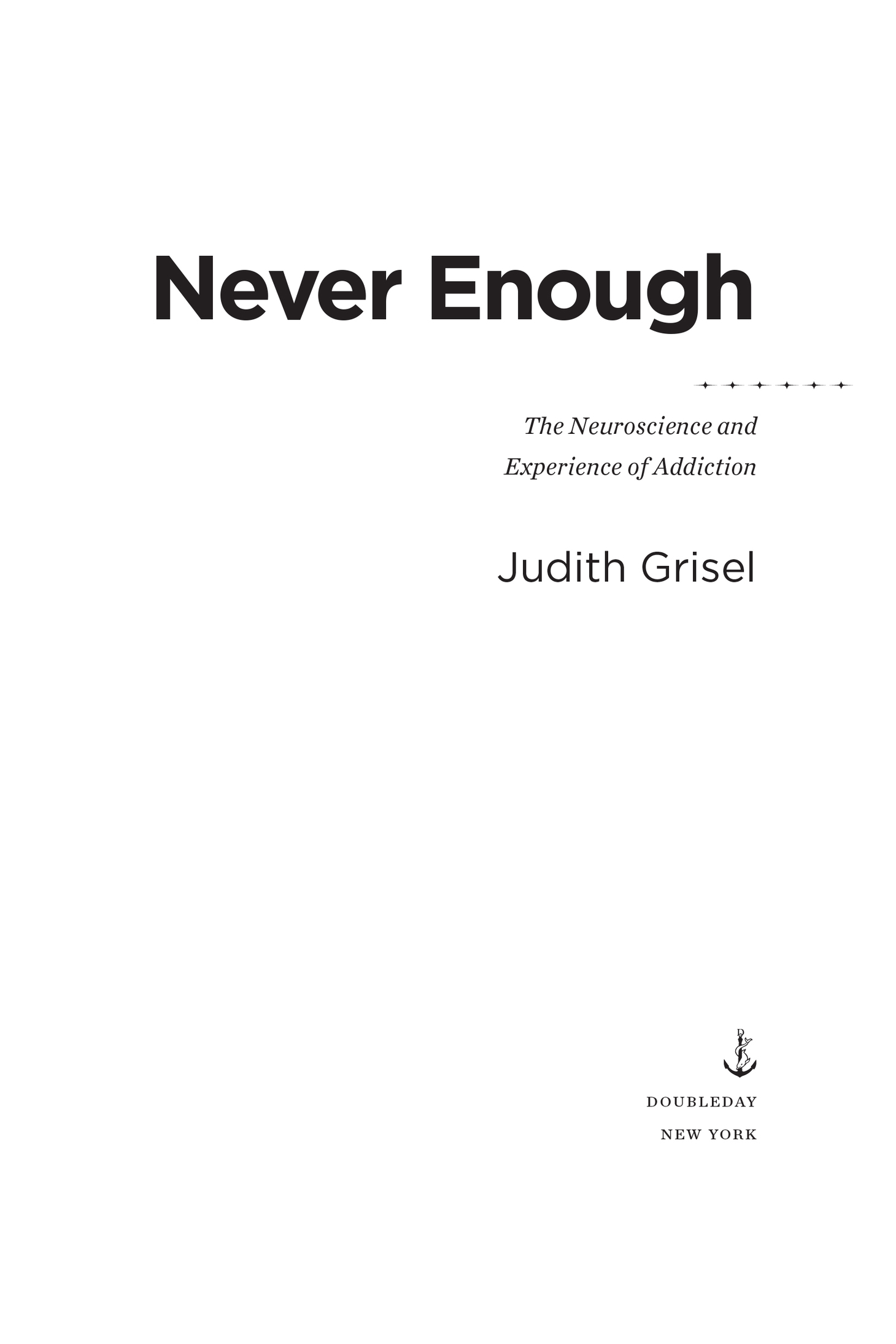Grisel - Never enough: the Neuroscience and Experience of Addiction
Here you can read online Grisel - Never enough: the Neuroscience and Experience of Addiction full text of the book (entire story) in english for free. Download pdf and epub, get meaning, cover and reviews about this ebook. year: 2019, publisher: Knopf Doubleday Publishing Group, genre: Romance novel. Description of the work, (preface) as well as reviews are available. Best literature library LitArk.com created for fans of good reading and offers a wide selection of genres:
Romance novel
Science fiction
Adventure
Detective
Science
History
Home and family
Prose
Art
Politics
Computer
Non-fiction
Religion
Business
Children
Humor
Choose a favorite category and find really read worthwhile books. Enjoy immersion in the world of imagination, feel the emotions of the characters or learn something new for yourself, make an fascinating discovery.
- Book:Never enough: the Neuroscience and Experience of Addiction
- Author:
- Publisher:Knopf Doubleday Publishing Group
- Genre:
- Year:2019
- Rating:5 / 5
- Favourites:Add to favourites
- Your mark:
Never enough: the Neuroscience and Experience of Addiction: summary, description and annotation
We offer to read an annotation, description, summary or preface (depends on what the author of the book "Never enough: the Neuroscience and Experience of Addiction" wrote himself). If you haven't found the necessary information about the book — write in the comments, we will try to find it.
Addiction is epidemic and catastrophic. With more than one in every five people over the age of fourteen addicted, drug abuse has been calledthemost formidable health problem worldwide. If we are not victims ourselves, we all know someone struggling with the merciless compulsion to alter their experience by changing how their brain functions.
Drawing on years of research--as well as personal experience as a recovered addict--researcher and professor Judy Grisel has reached a fundamental conclusion: for the addict, there will never be enough drugs. The brains capacity to learn and adapt is seemingly infinite, allowing it to counteract any regular disruption, including that caused by drugs. What begins as a normal state punctuated by periods of being high transforms over time into a state of desperate craving that is only temporarily subdued by a fix, explaining why addicts are unable to live either with or without their drug. One by one, Grisel shows how different drugs act on the brain, the kind of experiential effects they generate, and the specific reasons why each is so hard to kick.
Grisels insights lead to a better understanding of the brains critical contributions to addictive behavior, and will help inform a more rational, coherent, and compassionate response to the epidemic in our homes and communities.
Grisel: author's other books
Who wrote Never enough: the Neuroscience and Experience of Addiction? Find out the surname, the name of the author of the book and a list of all author's works by series.

